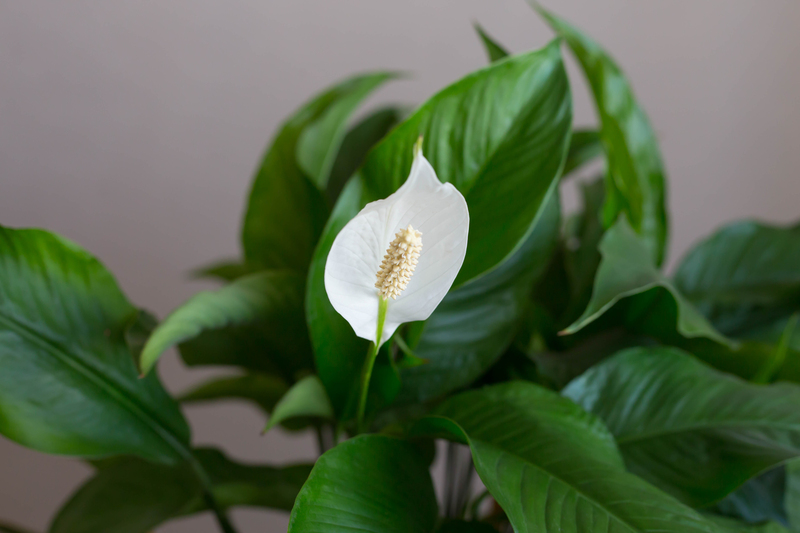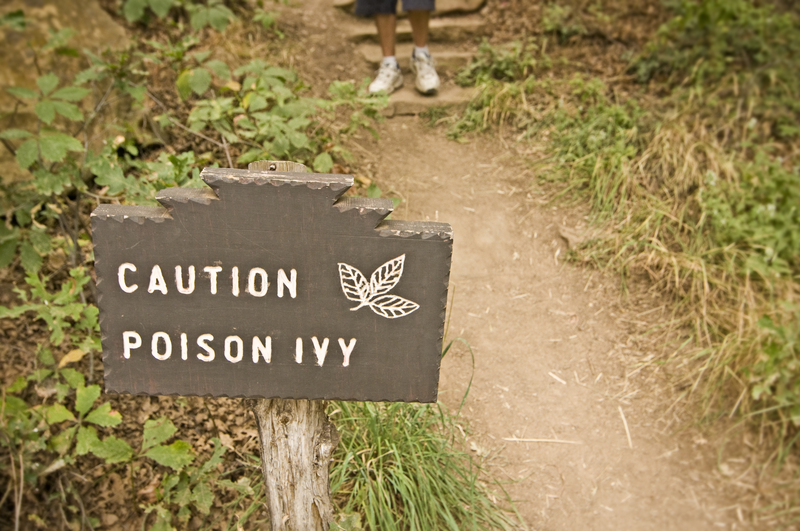Transform Your Green Space: 9 Vital Gardening Tips for Starters
Posted on 04/09/2025
Transform Your Green Space: 9 Vital Gardening Tips for Starters
Unlock your outdoor oasis and discover the secrets to successful gardening as a beginner. Crafting a green haven doesn't have to be daunting--even if you're just starting out. In this comprehensive guide, you'll find practical, effective, and easy-to-follow gardening tips for beginners that will help you nurture a healthy and thriving garden. Whether you dream of colorful flower beds or delicious homegrown vegetables, these 9 essential gardening tips will transform your green space and set you on the path to gardening success.
Introduction: The Joy of Creating a Green Space
Gardening is more than just a hobby--it's a fulfilling way to enhance your home's aesthetic, promote well-being, and foster a deeper connection with nature. For newcomers, the gardening world may seem overwhelming, but with the right guidance and foundational gardening tips, you'll soon enjoy the rewards of your labor. From choosing the right plants to understanding soil health, this guide offers everything you need to kick-start your gardening journey.

1. Start Small and Set Manageable Goals
If you're new to gardening, it's tempting to take on a big project right out of the gate. However, one of the most valuable gardening tips for starters is to begin small and manageable. This allows you to learn, adapt, and avoid becoming overwhelmed.
- Select a small patch of your yard or use containers for patio gardening.
- Set clear goals--grow a few herbs, a handful of flowers, or a basic salad garden.
- Allow yourself time to experiment and learn as you go.
Starting small ensures ongoing motivation and steady progress, making it easy to expand as your skills grow.
Why Starting Small Matters
Overcommitting can lead to frustration, especially when plants need more attention than anticipated. A focused, smaller project will foster confidence and skill--the perfect foundation for scaling up your green space in the future.
2. Know Your Garden's Environment
Before planting anything, it's crucial to observe and understand your garden's unique conditions. Soil type, sunlight, and climate play significant roles in plant success. Tailoring your plant choices to your local environment is a gardening tip beginners can't overlook.
- Sunlight: Track how much sun each area of your garden gets daily.
- Full Sun (6+ hours), Partial Sun (4-6 hours), or Shade (less than 4 hours).
- Soil Type: Test your soil--clay, loam, or sandy? Home testing kits are widely available.
- Climate: Know your USDA Hardiness Zone or local equivalents.
Selecting plants suited to these conditions maximizes growth and reduces maintenance headaches.
Assessing Your Green Space
Take time to walk your garden at different times of day. Make a note of shady and sunny spots. These observations will empower you to create planting plans that thrive all season long.
3. Choose the Right Plants for Beginners
One of the top beginner gardening tips is to pick easy-to-grow plants. Starting with resilient, low-maintenance varieties rewards your effort and builds confidence.
- Vegetables: Lettuce, radishes, beans, and zucchini are all beginner-friendly.
- Herbs: Basil, mint, and chives grow readily in containers or garden beds.
- Flowers: Marigolds, sunflowers, pansies, and zinnias tolerate a range of conditions.
- Perennials: Hostas, daylilies, and lavender come back year after year with minimal care.
Ask at your local nursery or garden center for varieties best suited to your area.
Planning for Success
Group plants with similar needs together to make watering and care easier. Mix annuals (plants that grow for a season) with perennials to enjoy color and interest year-round.
4. Master the Art of Watering
Achieving the right balance of water is one of the most vital gardening basics for starters. Overwatering and underwatering are both common pitfalls for novices.
- Morning Watering: Water your garden early in the day to minimize evaporation and prevent fungal diseases.
- Deep Watering: Water less often, but more deeply, encouraging roots to grow deeper.
- Soil Check: Press your finger into the soil--it should feel moist a couple of inches down, but not soggy.
- Mulching: Adding mulch conserves moisture and keeps roots cool.
Remember, different plants have different needs. Take time to research the ideal watering schedule for your chosen plants.
5. Feed Your Soil, Not Just Your Plants
Healthy gardens start from the ground up. One expert gardening tip for beginners is to prioritize soil health. Healthy soil means robust plants, fewer pests, and bigger harvests.
- Compost: Mix in compost to add nutrients and improve soil structure.
- Natural Amendments: Worm castings, bone meal, and fish emulsion enrich the soil.
- Mulch: Organic mulches, such as shredded leaves or straw, suppress weeds and feed the soil as they decompose.
- Rotation: Change the planting spot of vegetables each year to avoid nutrient depletion and disease.
Consider a soil test at the start of your gardening season to tailor your fertilizer and amendment strategy to your specific needs.
6. Embrace Mulching to Protect and Nourish
Mulching is a critical--and sometimes overlooked--step for beginner gardeners. Mulch offers numerous benefits:
- Retains Moisture: Reduces how often you need to water.
- Prevents Weeds: Blocks sunlight and stops weed seeds from germinating.
- Regulates Temperature: Insulates roots from heat and cold.
- Improves Soil: Adds organic matter as it breaks down.
Spread mulch evenly around your plants, keeping a small gap around stems to prevent rot.
7. Prune Regularly for Healthier Growth
Pruning isn't just about aesthetics--it's essential for plant health. Regularly removing dead or diseased branches prevents problems from spreading and encourages new, vigorous growth. Here are some top gardening tips for effective pruning:
- Timing: Prune most plants in early spring or after flowering.
- Tools: Use clean, sharp secateurs to make precise cuts.
- Technique: Cut just above an outward-facing bud to promote open growth.
- Remove: Dead, damaged, dying, or diseased stems and branches.
*Always check specific pruning times for each plant species for best results.*
Maintaining Your Tools
Disinfect your pruning tools after each use to minimize the risk of spreading disease from plant to plant.
8. Stay on Top of Weeding
Weeds are inevitable, but they don't have to take over your garden. Learning to manage weeds effectively is vital for any new gardener and will keep your green space looking its best.
- Early Removal: Pull weeds as soon as they emerge to prevent spreading.
- Consistency: Make weeding a regular part of your gardening routine (once a week is ideal).
- Mulching: As mentioned before, mulch suppresses weed growth efficiently.
- Hand Tools: Use a hand fork or hoe for shallow-rooted weeds, and a weeding knife for deeper ones.
A weed-free garden is a healthy garden--your plants won't have to compete for precious resources!
9. Keep Learning and Enjoy the Journey
Perhaps the most important garden tip for new gardeners is this: stay curious and enjoy the process. Mistakes happen--plants die, weather changes, and pests appear. Each season is a new opportunity to learn, adapt, and grow as a gardener.
- Join a local gardening club or online forum for support and advice.
- Track your garden's progress in a notebook or app; note what works and what doesn't.
- Read books, watch videos, and take local workshops to deepen your horticultural knowledge.
Your garden is a reflection of your journey. Celebrate even the smallest successes and remember--nature rewards patience and perseverance.

Bonus: Essential Tools for Every Beginning Gardener
Having the right tools at hand makes gardening more enjoyable and productive. Here's a basic toolkit every beginner should consider:
- Hand trowel: For digging and planting small plants.
- Gardening gloves: To protect your hands from dirt and thorns.
- Pruners: Essential for trimming and shaping plants.
- Watering can or hose: For flexible irrigation.
- Garden fork and spade: For turning soil and planting larger shrubs.
- Garden kneeler: To make weeding and planting more comfortable.
Invest in quality tools and maintain them well--they'll serve you for years to come.
Conclusion: Transforming Your Green Space Starts Here
With these 9 vital gardening tips for starters, even the newest gardeners can create a flourishing home oasis. Remember to start small, observe your unique environment, choose easy plants, nurture your soil, and keep learning. Every garden is a work in progress; each effort, no matter how modest, brings you closer to the lush and vibrant space you envision.
Are you ready to transform your green space? Gather your seeds, tools, and enthusiasm--the world of gardening awaits! Happy planting!
Latest Posts
Transform your garden into a calm Zen oasis
Top Tools Every Garden Enthusiast Needs
Sowing Seeds of Change: How Gardening Impacts Climate

